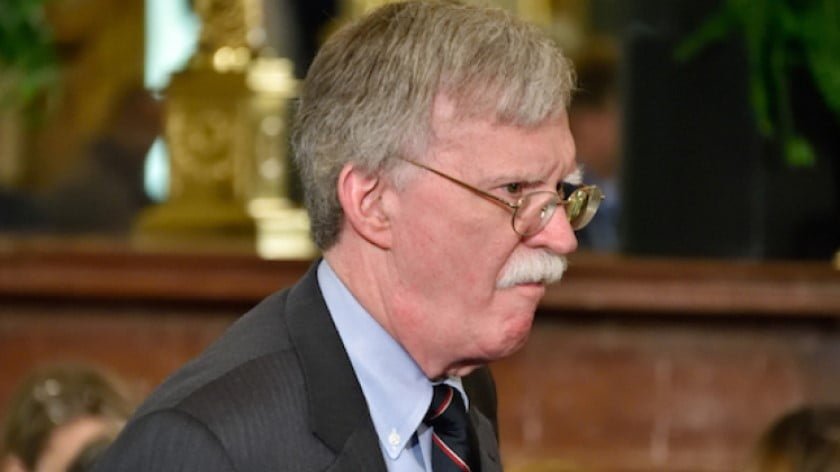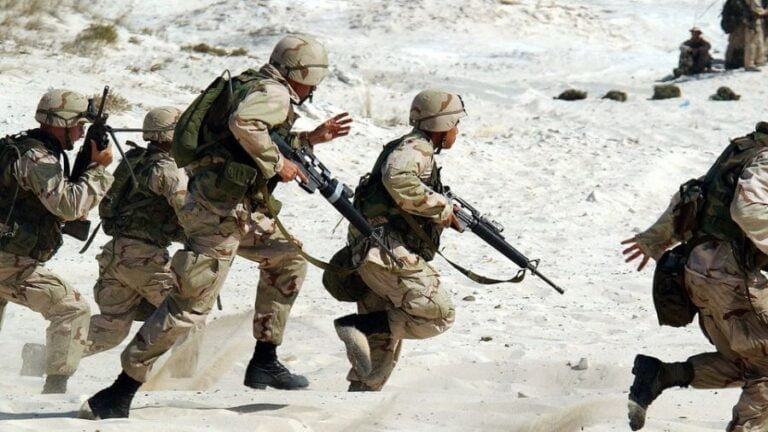Bolton’s Failures in Venezuela, Iran, Afghanistan and Russia Proved to be His Downfall
Trump’s decision to fire Bolton likely stemmed from the latter’s string of failures in Venezuela, Iran, Afghanistan, and Russia, with the American President finally realizing that enough is enough and that he needs to once again shuffle the “deep state” deck if he’s to start “winning” on the hard power foreign policy front ahead of next year’s elections.
***
Trump announced Bolton’s firing on Tuesday through his typical manner of sending out a tweet, remarking that he and his Administration “disagreed strongly with many of his suggestions” and therefore asked for his National Security Advisor’s resignation. This follows the latter’s string of failures in Venezuela, Iran, Afghanistan, and Russia, where the hawkish official lobbied hard for the most muscular approaches towards each of them. The American President dutifully complied when it came to the first two whereas he refused to follow Bolton’s advice when it came to the latter, dramatically tightening sanctions against the first-mentioned pair while seeking rapprochements with the second one. To elaborate a bit more in detail, the regime change operations against the Bolivarian and Islamic Republics have stalled, whereas Bolton’s efforts to sabotage Trump’s peacemaking outreaches to the Taliban and Moscow didn’t succeed.
The Hybrid War on Venezuela was promising at first but soon sputtered out as a result of “deep state” mismanagement due to an erroneous “wishful thinking” reading of the on-the-ground situation there, followed up by clumsy coup attempts that ultimately resulted in humiliating the US in its own hemisphere instead of showcasing its asymmetrical warfare capabilities like they were supposed to. The Hybrid War on Iran, meanwhile, has failed to achieve any tangible dividends either, which even Trump himself seems to tacitly acknowledge through his reported desire to meet President Rouhani on the sidelines of next week’s UN General Assembly meeting without any preconditions. That shouldn’t be seen as a sign of weakness, however, but as a pragmatic opening following the failure of Trump’s Bolton-inspired hardline policy towards the country and the need to achieve some sort of superficial success on that front ahead of next year’s elections.
Concerning Afghanistan, while the Taliban peace talks unexpectedly collapsed after last week’s Kabul attack, they could still conceivably be revived if Bolton’s exit is exploited as a “face-saving” compromise by Trump to do so behind the scenes. Regarding Russia, the “New Detente” is continuing to proceed apace as evidenced by President Putin’s successful trip to France last month, the recent Russian-Ukrainian prisoner swap that Trump himself enthusiastically commended as “perhaps a first giant step towards peace”, and the “deep state’s” efforts to sabotage everything by timing the release of its scandalous allegations about the CIA exfiltrating a high-level spy from Moscow to coincide with these strategic gains. It’s important to emphasize that Bolton was against both the Taliban peace talks and the rapprochement with Russia, so combined with his failures in Venezuela and Iran, Trump might have realized that it’s finally time to get rid of the proverbial “dead weight”.
Going forward, there’s reason for “cautious optimism” on all four fronts, but no one should get their hopes too unrealistically high. It was surprising that the US announced earlier on Tuesday that it won’t sanction Russia’s Rosneft for doing business with Venezuela, which gives Maduro a bit of a break for now but was likely a quid pro quo in the nascent “New Detente” with Russia more than anything else. The desire to meet with Rouhani is also welcome, but shouldn’t be interpreted as the US willing to scale back its sanctions, especially not with Netanyahu fearmongering about Iran’s supposedly secret nuclear sites. As for Afghanistan, there’s still heavy pressure on Trump to intensify attacks against the Taliban, but any move in this direction might be limited after the CENTCOM chief met with his Pakistani Army counterpart and likely realized the futility of doing so. Finally, while the “New Detente” is going well, Trump can’t remove the anti-Russian sanctions without Congress.
What this means is that those four countries might collectively breathe a sigh of relief for now, but they shouldn’t let their strategic guards down since Trump might be pressured by the “deep state” to lash out against one or some of them in order to set an example and show that the US isn’t “going soft” at this sensitive moment. Nevertheless, this “changing of the guard” veritably carries with it certain strategic opportunities, but only if they take the initiative to make the proper outreaches and not let this unexpected event tempt them to react arrogantly instead and thus risk provoking Trump’s vindictive ire in order to “save face”. It’s already an accomplishment in and of itself that Trump not only dumped Bolton but did so very dishonorably on Twitter, so none of the US’ rivals should try to “push their luck”. Instead, the best approach is to probe and see exactly how much this might influence American foreign policy, and then try to make the best of it.
By Andrew Korybko
Source: OneWorld







